 Overjoyed to see the Baileys (nee Orange) Women’s Prize for Fiction come out early this morning and to recognise a few books that I have actually read and really enjoyed. And even more pleasure in the fact that there is now a list from which I am sure to find more that I might not have been aware of, to add to the ever-growing list.
Overjoyed to see the Baileys (nee Orange) Women’s Prize for Fiction come out early this morning and to recognise a few books that I have actually read and really enjoyed. And even more pleasure in the fact that there is now a list from which I am sure to find more that I might not have been aware of, to add to the ever-growing list.
It may be a women’s prize, but it celebrates diversity across generations, genres, countries and cultures, something that blogging has certainly encouraged as the recommendations and access to what is available out there is no longer limited by geographic borders and what’s on display in bookshops.
 The 20 titles are selected for excellence, originality and accessibility in writing by women (in English) from throughout the world.
The 20 titles are selected for excellence, originality and accessibility in writing by women (in English) from throughout the world.
The judges had this to say:
“The judges feel that this is a fantastic selection of books of the highest quality – intensely readable, gripping, intelligent and surprising – that you would want to press on your friends, and the judges have been doing just that,” commented Helen Fraser, Chair of Judges. “There was a great deal of talent and exciting writing in the books that were submitted this year and we hope that between now and the announcement of the shortlist on 7th April many readers will want to share the enjoyment we have had with these 20 terrific novels.”
And the longlisted titles are:
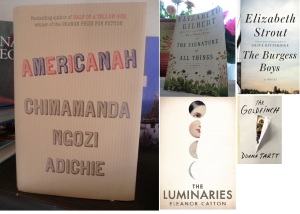 Chimamanda Ngozi Adichie – Americanah – Nigerian – My review here
Chimamanda Ngozi Adichie – Americanah – Nigerian – My review here
Margaret Atwood – Maddaddam – Canadian
Suzanne Berne – The Dogs of Littlefield – American
Fatima Bhutto – The Shadow of the Crescent Moon – Pakistani – My review here
Claire Cameron – The Bear – Canadian
Lea Carpenter – Eleven Days – American
M.J. Carter – The Strangler Vine – British – 1st Novel
 Eleanor Catton – The Luminaries – New Zealand/Canadian – my review here
Eleanor Catton – The Luminaries – New Zealand/Canadian – my review here
Deborah Kay Davies – Reasons She Goes to the Woods – British
Elizabeth Gilbert – The Signature of All Things – American – my review here
Hannah Kent – Burial Rites – Australian
Rachel Kushner – The Flamethrowers – American
Jhumpa Lahiri – The Lowland – Indian/American
Audrey Magee – The Undertaking – Irish
Eimear McBride – A Girl is a Half-Formed Thing – Irish
Charlotte Mendelson – Almost English – British
Anna Quindlen – Still Life With Bread Crumbs – American
Elizabeth Strout – The Burgess Boys – American – my review here
Donna Tartt – The Goldfinch – American
Evie Wyld – All the Birds, Singing – British – my review here
So, one month to read a few more from the list – I will definitely be reading Evie Wyld, I have The Goldfinch, but that’s my summer chunkster, so I’m saving that for August, I’d like to read Hannah Kent’s novel Burial Rites set in Iceland and based on a true story, I have mentioned that numerous times to people and not got around to reading it myself yet. I am curious about The Flamethrowers and Fatima Bhutto’s book sounds interesting.
So what titles are you considering?




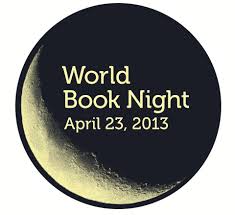
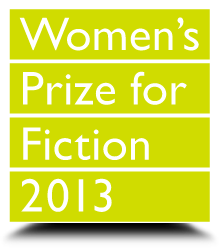
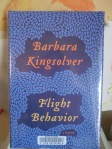
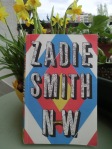
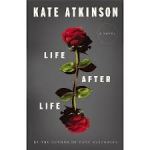
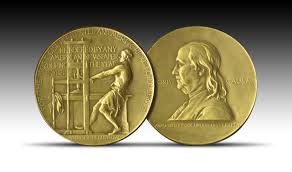
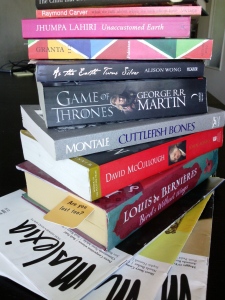
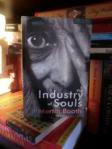
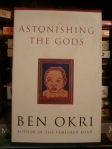
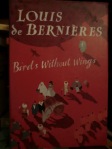
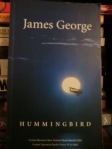




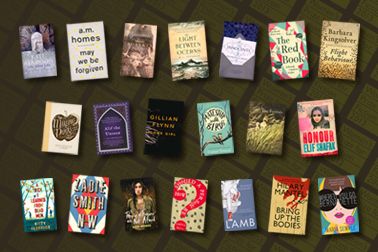
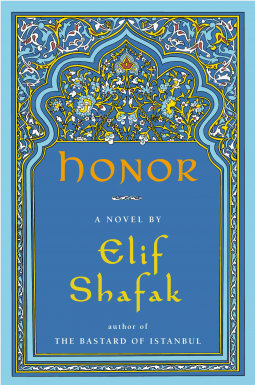
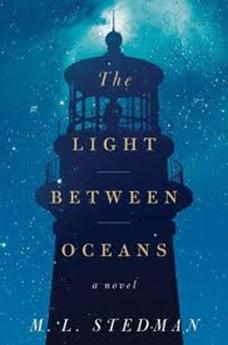




 ever faithful, if somewhat distracted guests.
ever faithful, if somewhat distracted guests.


 and a unique cultural insight.
and a unique cultural insight.



 Quiet on the blog front while life enters an extremely busy period here with La Rentrée and a working visit to London; I have a few summer reads still to review, so hope to add those as I find time.
Quiet on the blog front while life enters an extremely busy period here with La Rentrée and a working visit to London; I have a few summer reads still to review, so hope to add those as I find time.
